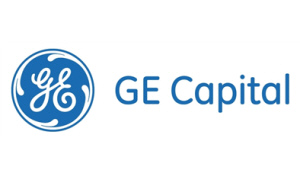 Is this the last hurrah for GE Capital’s Castle Harbour transaction?
Is this the last hurrah for GE Capital’s Castle Harbour transaction?
The story of GE Capital’s sophisticated tax deal with two Dutch banks finally may have come to a conclusion. In 1993, two Dutch banks, ING Bank N.V. and Rabo Merchant Bank N.V., purchased an interest in Castle Harbour LLC, a partnership in which TIFD III-E, Inc., a subsidiary of General Electric Capital Corp., served as the tax-matters partner. In short, Castle Harbour allowed GE to refinance a fleet of fully depreciated aircraft, allocate the taxable income from that fleet to its tax indifferent foreign partners (the banks) while preserving the economic benefits of the income for itself. Shifting the tax burden on the operating income to the foreign banks saved the GE subsidiary more than $60 million in U.S. taxes.
The IRS challenged the transaction in 2001 when it issued two Final Partnership Administrative Adjustments (FPAAs) against the tax-matters partner, TIFD III-E. The IRS alleged that the banks were not partners in Castle Harbour LLC. Litigation ensued. After a bench trial, the District Court for the District of Connecticut ruled in favor of the taxpayers finding that the banks were partners for tax purposes. The Second Circuit rejected the District Court’s finding and held that the partners did satisfy the totality of the circumstances test under Commissioner v. Culbertson, 337 U.S. 733 (1949). It then remanded the case to the District Court to address the taxpayer’s secondary argument, undecided in the first trial, that the partners qualified as partners under IRC Section 704(e). The District Court again found for the taxpayers and further determined that there was substantial authority for the taxpayer’s positions, thus the penalties asserted by the IRS did not apply.
In the this opinion, the Second Circuit has again rejected the District Court’s findings. The Court of Appeals held that the lower court erred and found that the banks did not have a capital interest in the partnership, as required by 704(e), and therefore were not partners. The appellate court further determined that the taxpayer did not offer substantial authority for its position and upheld the government’s penalty.
Given the determinations made by the Court of Appeals, it is hard to see how the taxpayers might establish grounds for a writ of certiorari. They have 90 days from the date of the order to file that petition.
Read the opinion here.
TIFD III-E, Inc. v. United States, Docket No. 10-70-cv (2nd Cir. January 24, 2012)

